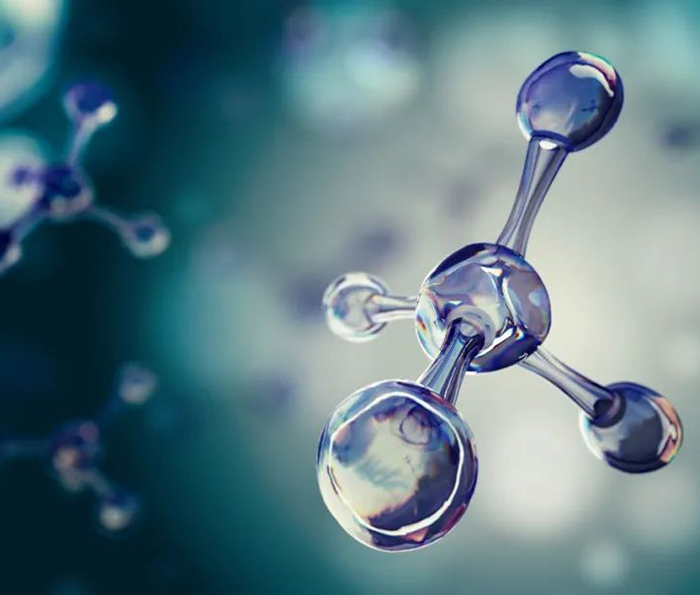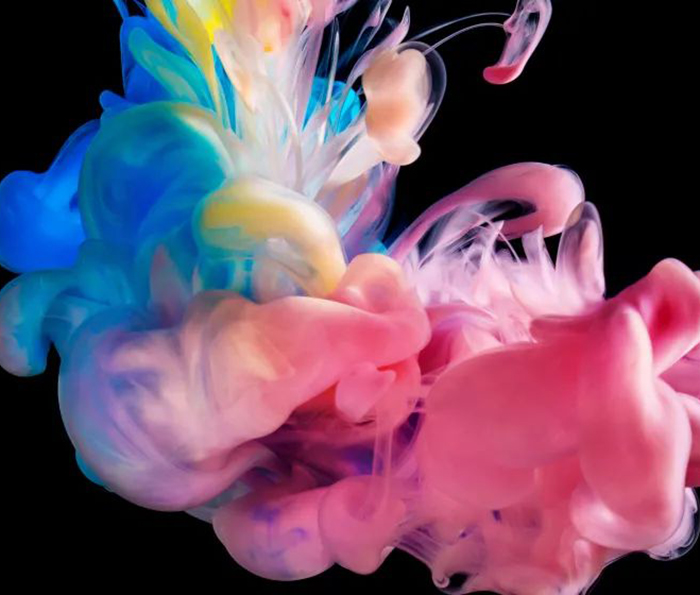-

Polymer tanning agent with Ultra performance and ‘Unique’ molecular weight | Decision’s optimal product recommendation
polymer product molecular weight
In leather chemical, one of the most concerned question in the discussion of polymer products is that, weather the product is a micro or macro-molecule product.
Because among the polymer products, molecular weight ( to be precise, the average molecular weight. a polymer product contains micro and macro-molecule components, thus when speaking of molecular weight, it usually refers to the average molecular weight.) is one of the principle bases of the product’s properties, it might affect the product’s filling, penetrating property as well as the soft and suave handle of the leather it could endow.Of course, the final property of a polymer product is related to various factors such as the polymerization, chain length, chemical structure, functionalities, hydrophilic groups, etc. The molecular weight could not be regarded to as the sole reference of the product property.
The molecular weight of most of the polymer retanning agents on the market is around 20000 to 100000 g/mol, the properties of products with molecular weight within this interval shows more balanced property.However, the molecular weight of two of Decision’s products is outside of this interval in the opposite direction.
-

Excellent light fastness | Decision’s optimal recommendation of syntan product
There are always some classic pieces that we find in our life that make us smile every time we think of them. Like that super comfy white leather boots in your shoe cabinet.
However, it frets you sometimes to remember that over time, your favorite boots will no longer be as white and shiny, and would gradually become old and yellowish.
Now let’s find out what’s behind of the yellowing of white leather——In 1911 AD Dr. Stiasny has developed a novel synthetic tannin that could replace vegetable tannin. In comparison with vegetable tannin, synthetic tannin is easy to produce, has great tanning property, light color and good penetrability. Thus it has come to occupy an important position in the tanning industry over the hundred years of development. In the modern tanning technology, this type of synthetic tannin is used in almost all the articles.
Due to its different structure and application, they are often called synthetic tannin, phenolic tannin, sulfonic tannin, disperse tannin, etc. The commonality of these tannins is that their monomer is usually of phenolic chemical structure.
-

Excellent defoaming property, maintain the comfortable handle|Decision’s recommendation of optimal product of DESOPON SK70
What are foams?
They are magic floating above the rainbows;
They are the charming glow on the hair of our loved one;
They are the trails left behind when a dolphin dives into the deep blue ocean…To tanners, foams are caused by mechanical treatments (inside the drums or by paddles), that encapsulated air inside the surfactant components of the working fluid and formed a mixture of gas and liquid.
Foams are inevitable during the wet end process. That is because, in the wet end process, especially the retanning stage,water, surfactants and mechanical treatments are the three main factor of the cause of foams, yet these three factors exist nearly throughout the process.Amongst the three factors, surfactant is one of the essential materials used during the tanning process. The uniform and stable wetting of crust and the penetration of chemicals into the crust all depend on it. However, a substantial amount of surfactant could cause the problems of foams. Too much foams could bring about problems for the proceeding of the tanning process. For instance, it might affect the even penetration, absorption, fixation of chemicals.
-

DESOATEN ARA Amphoteric Polymeric Tanning Agent and DESOATEN ARS Amphoteric Synthetic Tanning Agent | Decision’s Premium Recommendations
There is a character called Wang Yangming in The Ming Dynasty. When he was away from the temple, he founded the school of the mind; when he was a parental official, he benefited the community; when the country was in crisis, he used his wisdom and courage to almost single-handedly quell the rebellion and prevent the country from being ruined by civil war. “To establish merit and virtue and speech is hardly a second choice in the last five thousand years.” Wang Yangming’s great wisdom lies in the fact that he was kinder in the face of the good people and more cunning in the face of the cunning rebels.
The world is not one-sided, it is often hermaphroditic. Just like amphoteric tanning agents among leather chemical. Amphoteric tanning agents are tanning agents that have a cationic group and an anionic group in same chemical structure – when the pH of the system is exactly the isoelectric point of the tanning agent. the tanning agent exhibits neither cationic nor anionic properties;
When the pH of the system is below the isoelectric point, the anionic group of the tanning agent is shielded and assumes a cationic character, and vice versa. -

Make floater article more even, DESOATEN ACS | Decision’s Premium Recommendations
If you are driving in Xinjiang, follow the Lianhuo Expressway back to Urumqi, after crossing the Guozigou Bridge, you will pass through a long tunnel, and the moment you come out of the tunnel – a large crystal clear blue will rush into your eyes.
Why do we love lakes? Perhaps because the shimmering surface of the lake gives us a sense of ‘dynamic’ calm, not rigid like well water or messy like a waterfall, but restrained and lively, in line with the Eastern aesthetic of moderation and introspection.
Floater is probably the style of leather that best reflects this aesthetic.
Floater is a common style in leather because of special grain effect, which gives a natural and relaxed style interest. It is used extensively in casual shoes, outdoor shoes and furniture sofa leather. It is also used to enhance the style and improve the grade of the leather, as the break hides the damage to the leather.But a good floater also places high demands on the original rawhide itself. It requires a good evenness of the wet wetblue , otherwise it can easily cause uneven break problems. However, even if the wetblue is well treated, the variation in the original skins of the animals, especially the large differences in the backbone and side bellies, can make even break the biggest challenge of the floater style. So in response to this problem, the Decision’s team has introduced a new solution.
-

Super soft synthetic fatliquor DESOPON USF | Decision Premium Recommendations
Softness
In the hills of Ecuador grows a grass called toquilla, the stems of which can be woven into hats after some treatment. This hat was popular with the workers on the Panama Canal because it was light, soft and breathable, and was known as the “Panama hat”. You can roll the whole thing up, put it through a ring and unfold it without a wrinkle. So it’s usually packaged in a cylinder and rolled up when not being worn, making it easy to carry around.
One of Bernini’s most celebrated sculptures is the magical “Pluto Snatching Persephone”, where Bernini created what is probably the “softest” marble in human history, expressing the supreme beauty of marble in its “softness”.
Softness is the basic perception that gives humans a sense of identity. Humans like softness, perhaps because it does not bring us harm or risk, but only security and comfort. If all sofas in American homes were Chinese solid wood funniture, there must not be so many couch potatoes, right?
Therefore, for leather, softness has always been one of the most recognised properties by consumers. Whether it is clothing, furniture, or carseat.
The most effective product for the softness in the leather-making is fatliquor.
The softness of the leather is the result rather than the aim of fatliquor, which is to prevent the fibre structure from re-adhesion during the drying (dehydration) process.
But in any case, the use of fatliquors, especially certain natural ones, can result in very soft and comfortable leathers. However, there are also problems: most natural fatliquors have an unpleasant smell or yellowing because of the large number of unsaturated bonds in their structure. Synthetic fatliquors, on the other hand, do not suffer from this problem, but they are often not as soft and comfortable as required.Decision has one product that solves this problem and achieves extraordinary performance:
DESOPON USF Super soft synthetic fatliquor
We’ve made it as soft as it can be -





